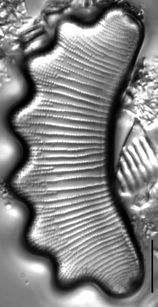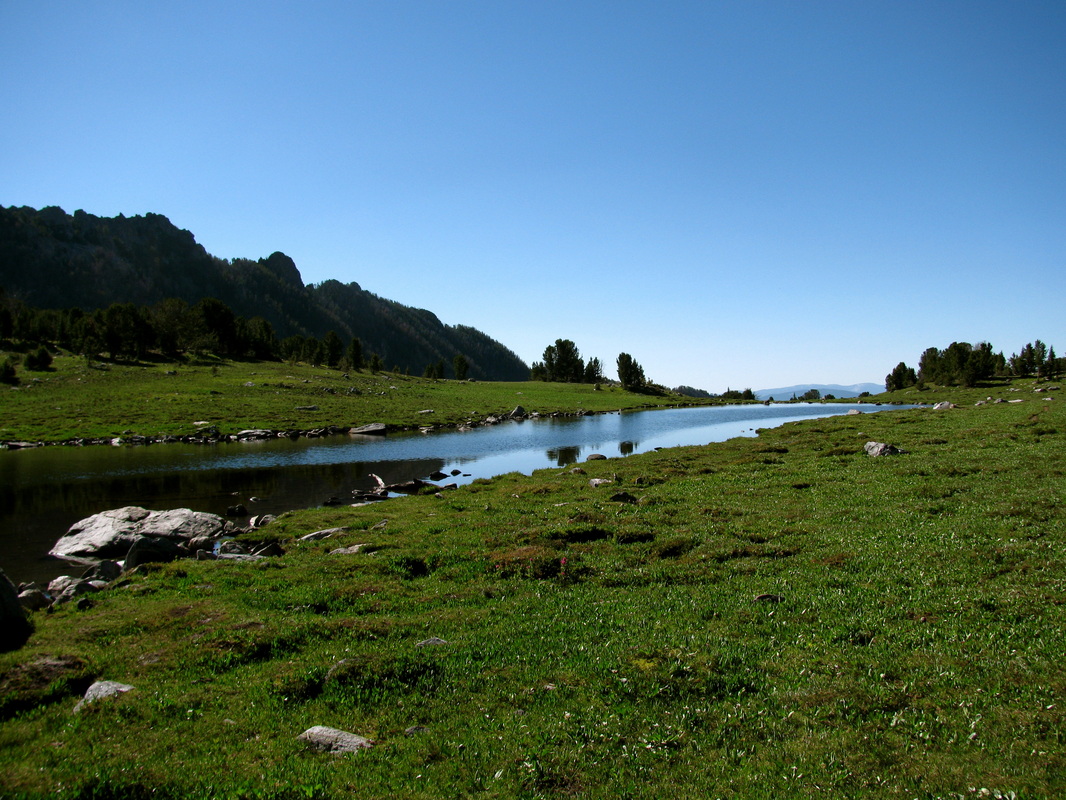I love alpine lakes. There is nothing better than getting to the top of a hike, whether it takes several hours or all day, and seeing that calm, flat, reflective body of water waiting at the top for me. If I can jump in I will, bracing myself for the sharp cold of water that was snow only hours before. Dr. Loren Bahls is a fan of alpine lakes because they hold the key to his climate change research. Dr. Bahls is the curator of the Montana Diatom Collection in Helena, MT, and his work is focused on finding new species and helping to piece together the story of climate change in the North West.
Diatoms are unicellular microbes with cell walls made of glass. Though invisible to the naked eye, these tiny microbes are responsible for 40% of carbon fixation and oxygen production world wide. The North West is the least sampled area for diatoms and most of those samples have come from lower elevation lakes that have been polluted. Imagine the possibilities for finding new species in these pristine alpine lakes.
This weekend I had a friend in town and decided to show her one of my favorite easily accessible alpine lakes in Beehive Basin above Big Sky, MT. Beehive Lake sits at 9,200 ft and is surrounded by granite peaks that boast snow year round. I took the diatom sampling kit provided by Dr. Bahls with me to see what I could find. With a storm rolling in during late afternoon, I wasn’t positive I would be able to take the samples, but the directions are relatively easy. I found some aquatic moss near the shore and squeezed the lake water into a vile. Diatoms live right at the surface of lakes and are best found living in aquatic vegetation, in the slime on submerged sticks, and other similar areas. I screwed the cap on the vile and copied down where I found the sample just as the first rumble of thunder hit us. I can’t wait to find out what’s in there. There is a good possibility Dr. Bahl will find new species. Maybe he’ll name one after me.
Anyone can join in the study while hiking in the Northwest. It’s relatively quick and easy to take samples, and ASC can provide you with a sampling kit and all the instructions to get you going. For more information check out the website here: http://www.adventureandscience.org/diatom-lake.html
This weekend I had a friend in town and decided to show her one of my favorite easily accessible alpine lakes in Beehive Basin above Big Sky, MT. Beehive Lake sits at 9,200 ft and is surrounded by granite peaks that boast snow year round. I took the diatom sampling kit provided by Dr. Bahls with me to see what I could find. With a storm rolling in during late afternoon, I wasn’t positive I would be able to take the samples, but the directions are relatively easy. I found some aquatic moss near the shore and squeezed the lake water into a vile. Diatoms live right at the surface of lakes and are best found living in aquatic vegetation, in the slime on submerged sticks, and other similar areas. I screwed the cap on the vile and copied down where I found the sample just as the first rumble of thunder hit us. I can’t wait to find out what’s in there. There is a good possibility Dr. Bahl will find new species. Maybe he’ll name one after me.
Anyone can join in the study while hiking in the Northwest. It’s relatively quick and easy to take samples, and ASC can provide you with a sampling kit and all the instructions to get you going. For more information check out the website here: http://www.adventureandscience.org/diatom-lake.html


